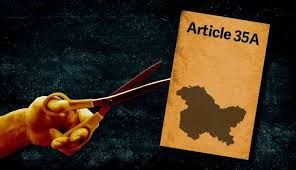Posted by Dr. Gopal Unnikrishna Kurup
Triple Talq Verdict by Supreme Court a Moral Booster for BJP
When on Tuesday, the SC verdict struck down triple talaq, the struggle by Muslim women to get their Constitutional right to gender equality and dignity started by Sha Bano over three decades back was brought to fruition, albeit partly, by another Bano, Shayara Bano, the courageous woman from Uttarakhand.
The SC verdict was welcomed widely by political parties across ideological prism, social activists, jurists and Muslim scholars—a sharp contrast to the vociferous protest that had greeted the apex court verdict in 1985, entitling Shah Bano, a 62 years old mother of five, to alimony. Unlike now, Muslim groups had then hit the streets in protest, prompting the ruling Congress leaders to join the chorus. Rajiv Gandhi developed cold feet, apprehensive of the vote bank repercussions of a Hindu PM allowing reforms in Muslim personal law, and hastily moved to bring in legislation to nullify the SC verdict much against considerable opposition from within, especially the women leaders.
Triple Talq Verdict by Supreme Court a Moral Booster for BJP
When on Tuesday, the SC verdict struck down triple talaq, the struggle by Muslim women to get their Constitutional right to gender equality and dignity started by Sha Bano over three decades back was brought to fruition, albeit partly, by another Bano, Shayara Bano, the courageous woman from Uttarakhand.
The SC verdict was welcomed widely by political parties across ideological prism, social activists, jurists and Muslim scholars—a sharp contrast to the vociferous protest that had greeted the apex court verdict in 1985, entitling Shah Bano, a 62 years old mother of five, to alimony. Unlike now, Muslim groups had then hit the streets in protest, prompting the ruling Congress leaders to join the chorus. Rajiv Gandhi developed cold feet, apprehensive of the vote bank repercussions of a Hindu PM allowing reforms in Muslim personal law, and hastily moved to bring in legislation to nullify the SC verdict much against considerable opposition from within, especially the women leaders.
Diametrically opposite is the situation now signifying how much India has progressed. Union law minister Ravishankar Prasad said that India of 2017 is not that of 1987 (when Sha Bano verdict was scuttled by Congress). Prime Minister Narendra Modi, BJP president Amit Shah and many senior BJP leaders were quick to welcome the court ruling, terming it as a victory for gender justice and dignity. BJP leaders were at pains to explain that the SC judgment should not be linked with religion.
The BJP’s stand on triple talaq is expected to appeal to the liberal intelligentsia within the Muslim community as also to the right-wing elements who have berated the Congress for allegedly indulging in “minority appeasement”. And the party now looks forward to considerable political gain, especially in the upcoming assembly elections in Gujarat and Himachal Pradesh.
The BJP’s stand on triple talaq is expected to appeal to the liberal intelligentsia within the Muslim community as also to the right-wing elements who have berated the Congress for allegedly indulging in “minority appeasement”. And the party now looks forward to considerable political gain, especially in the upcoming assembly elections in Gujarat and Himachal Pradesh.



